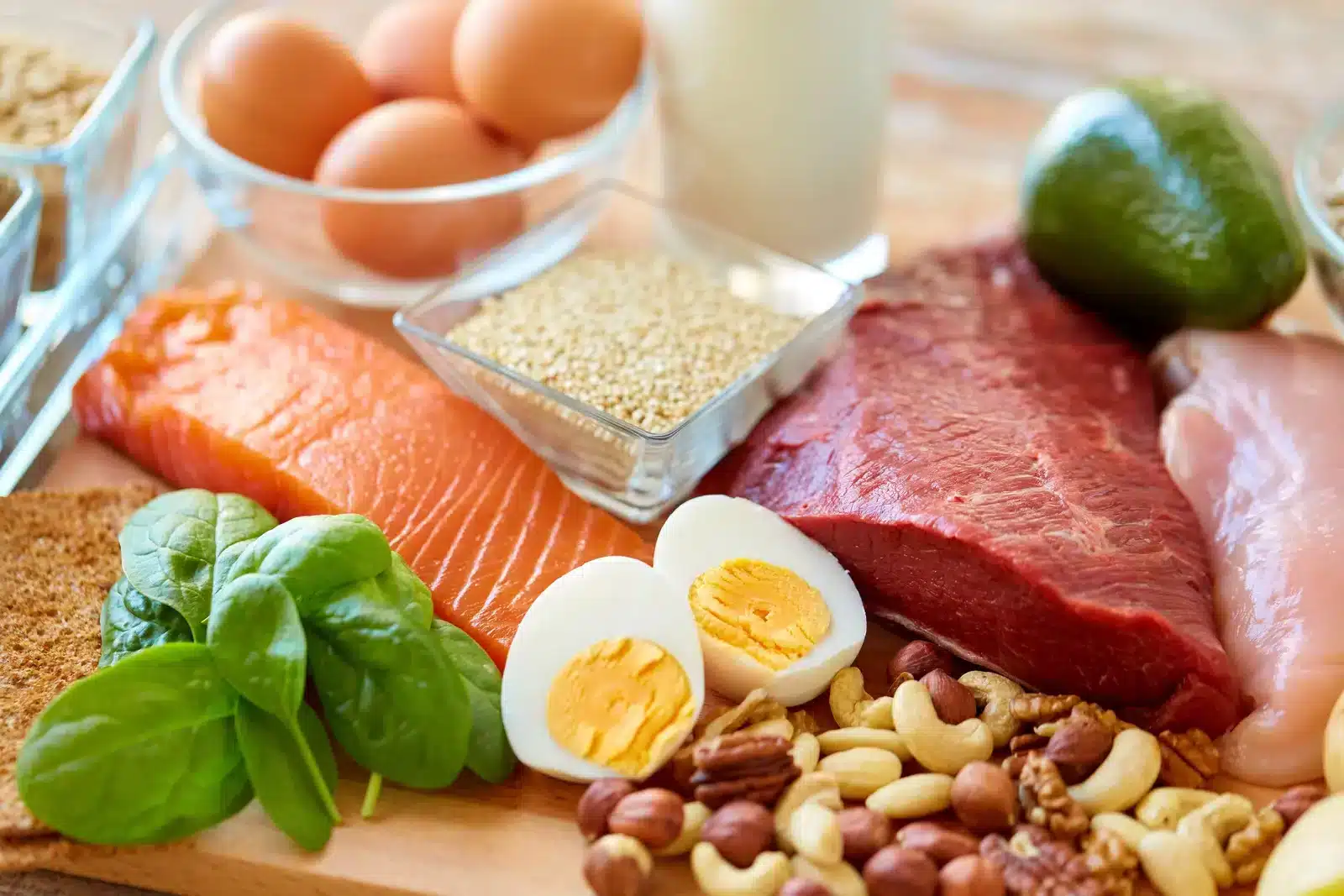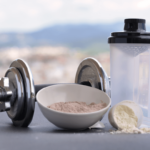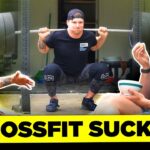High-protein, low-fat diets are all the rage. And for good reason. High-protein, low-fat foods are a fantastic way to support muscle building. But sometimes, it takes time to understand how it all works or what foods are best for fueling your muscles.
Keep reading to learn more about high protein, low-fat foods and read about 12 of the best high protein, low-fat foods to fuel your muscles. Let’s get started.
Jump to:
What Are the Benefits of High Protein Foods?
High-protein foods are an efficient way to increase your daily protein intake . There are lots of benefits to including high-protein foods in your diet. Our body uses protein in many ways, including building, repairing, and maintaining muscle.
Dietary protein also supports a protein in your red blood cells that helps to oxygenate your blood. Plus, half your daily protein is used to help with digestion which can also help you lose and maintain a healthy weight.
Finally, protein is essential in hormones, especially during the rapid changes experienced during puberty.
What Are the Benefits of Low-Fat Foods?
Including low-fat foods in your diet also has some health benefits. A research study by the Fred Hutch Cancer Center found that a low-fat diet reduced fatalities after a breast cancer diagnosis by 15-35 percent.
They also found that participants on the low-fat diet had a reduction of insulin-dependent diabetes by 13-35 percent and a 15-30 percent decrease in cardiovascular disease.
You can also lose weight on a low-fat diet by carefully including good fats, nutrient-dense carbohydrates, and complete proteins.
How Do High Protein Low Fat Foods Influence Your Muscle Growth?
Protein is crucial for muscle growth because it’s made of amino acids, the building blocks of protein and muscle. Complete proteins are most often animal-based proteins, but some plant-based complete proteins contain the nine essential amino acids your body cannot make but needs to build muscle cells. So, if muscle growth is your goal, a steady supply of complete proteins is essential.
Remember, different protein sources and types are digested at different rates, so including various protein types and sources allows a prolonged release of amino acids. Also, our body needs fatty acids to build every cell structure, including muscle cells, so excellent choices of fatty acids, such as nuts, seeds, fatty fish, olive oil, and avocados, are also essential for muscle growth.
12 Best High Protein Low-Fat Foods for Your Muscles
So, now that you better understand high-protein, low-fat foods and their role in muscle growth, let’s look at some nutritious food options in a high-protein, low-fat diet. Here are 12 of the best low-fat and protein-rich foods for your muscles.
1. Edamame
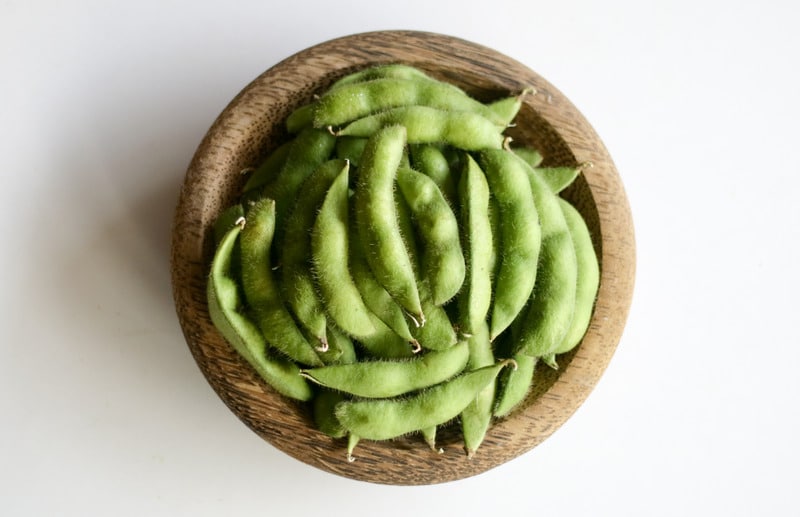
Edamame are immature soybeans and have 18 grams of protein per cup. People can use edamame in many ways, including soups and salads. Edamame is also an excellent protein source for stir fry. You can also eat them as a quick snack in either a raw or roasted form.
2. Low or Non-Fat Kefir
Kefir is a low-fat, high-protein fermented dairy product similar to yogurt, but the increased fermentation creates a tangier flavor. It’s also thinner and has more of a smoothie or drink-like consistency. It has 10 grams of protein in one cup and, like yogurt, has a healthy supply of probiotics which are great for digestive health.
Kefir comes from either plant or animal products, and both are delicious options, but animal-based kefir has a higher protein content. Individuals often use kefir in fruit or green smoothies; some enjoy it plain.
3. Egg Whites
Egg whites are almost pure protein and have virtually no fat, which makes them the ideal high-protein, low-fat food. But egg whites have few other nutrients because most of an egg’s nutrients, such as vitamins, minerals, antioxidants, and healthy unsaturated fats, are found in the yolk. So you may not be getting as much nutrients from just egg whites compared to eating a whole egg or hard-boiled egg.
4. Turkey
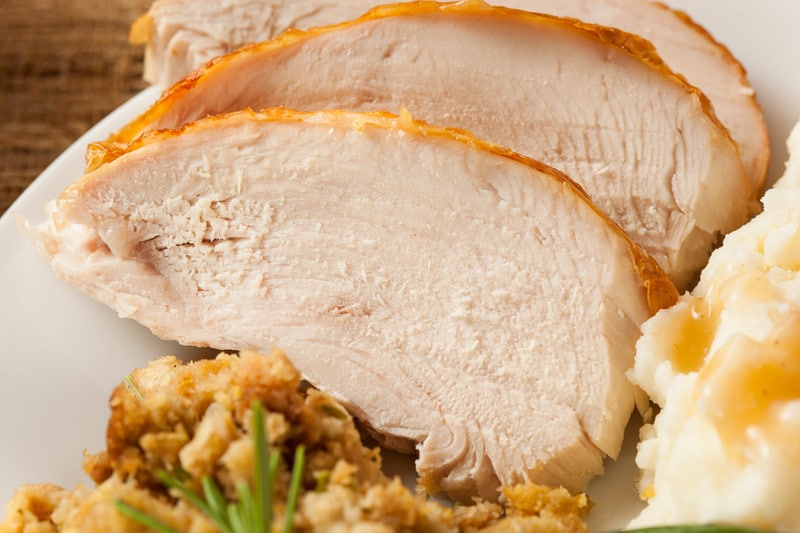
Turkey breast is a fantastic protein with very little fat or calories. Turkey deli meat is a versatile way to include turkey into your daily diet. Specifically, turkey deli meat has 12 grams of protein per serving and can easily be eaten in a sandwich or by itself. Turkey also has a strong supply of vitamins and minerals like selenium, zinc, vitamin B12, and Vitamin B6.
5. Chicken Breast
Skinless chicken breast is the quintessential example of high-protein, low-fat food because of its high amounts of protein per calorie. It has 26 grams of protein in a 3-ounce serving, about half of a breast. Due to its mild flavor, most people like chicken, so it’s an easy way to get more protein in your diet.
Chicken is also rich in several B vitamins, selenium, and zinc and is a lean source of protein with low saturated fats, which makes this an excellent food for weight loss.
6. Low or Non-Fat Greek Yogurt
Greek yogurt is a thicker, more tart version of yogurt and is high in protein. A single 7-ounce container has 19.9 grams of protein.
Just be careful about the amount of sugar. Some brands or types can have higher sugar content which brings its own set of health risks. Read the nutrition label to look for containers with less than 9 grams of sugar. You can also increase the fiber content by adding nuts or your favorite fruit.
7. Lentils
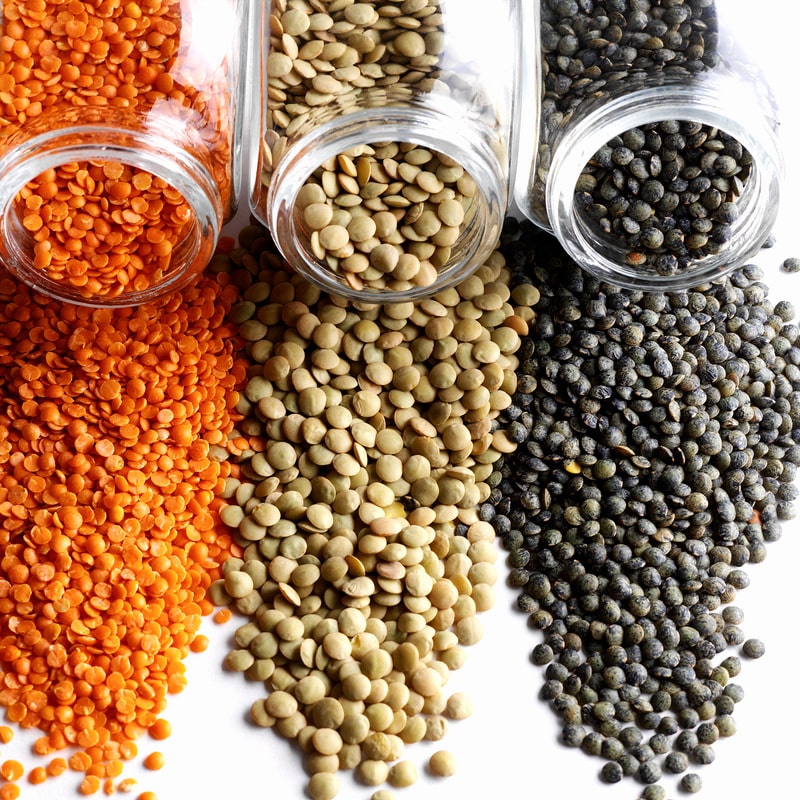
Lentils are the richest plant-based protein source, giving them plenty of protein for vegetarians or vegans. Lentils have a little over 9 grams of protein in 100 grams of cooked lentils.
Also, lentils are a good source of fiber, folate, magnesium, potassium, iron, copper, and manganese. They’re also unique because studies have shown that people who consume a lot of lentils or other legumes, like black beans, garbanzo beans, or kidney beans, have a reduced risk for heart problems or fatty liver disease.
8. Tuna fish
Tuna can easily be found either canned or in pouches, making it easy to have tuna on hand at all times. Tuna has 14 grams of protein in a 2-ounce serving, making it a fantastic high-protein option.
Fish, especially white fish or fatty fish, are an incredible source of vitamins and minerals like iodine, selenium, vitamin B12, and omega-3 fatty acids. Individuals who regularly eat fish have lower risks of heart disease and type 2 diabetes.
9. Peanut Butter Powder
Protein powders are a quick and easy way to increase your dietary protein intake . And peanuts have a high protein content and high levels of excellent nutrients such as folate, magnesium, and vitamin E.
Studies have shown that when added to your meal, peanuts can reduce blood sugar spikes and increase feelings of being full. Therefore, peanut butter powder is an excellent protein supplement.
10. Pork Tenderloin
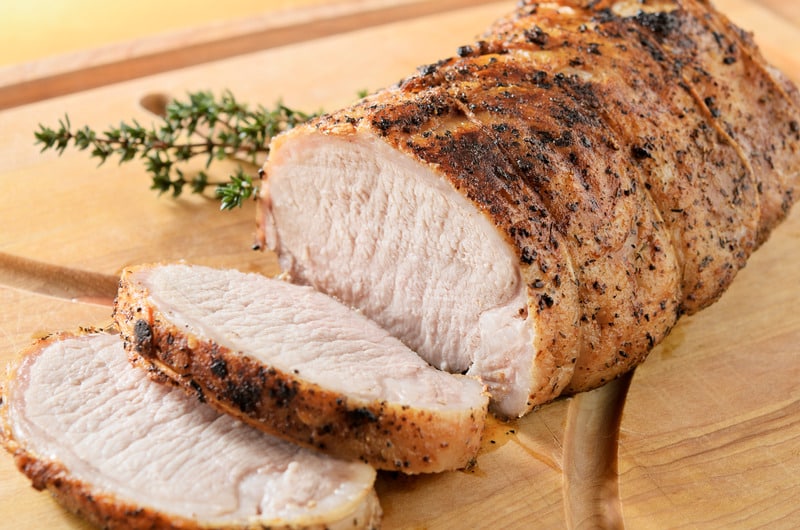
As a red meat, pork is an excellent lean protein food, with 22 grams of protein in a 3-ounce serving. Pork also has no carbohydrates, making it a good option for a healthy diet plan and a healthy protein. Pork is rich in B vitamins, zinc, and selenium. Specifically, pork tenderloin is an extra-lean meat, making it an excellent low-fat choice.
11. Bison
Bison is a lean, low-fat meat with high protein content and an excellent alternative to beef. In a 4-ounce portion, Bison has between 17 and 25 grams of protein and has only 146 calories per 100 grams of raw meat making bison a high-quality protein. That means bison has up to 5.84 grams of protein per calorie.
Bison is also a complete protein with all nine essential amino acids and is a superb source of nutrients such as B vitamins, zinc, selenium, and other minerals.
12. Venison
Venison is deer meat and is another leaner alternative excellent replacement for lean beef. Venison is a high-protein, low-fat food that is also low in calories. In a 3-ounce serving, venison has 159 calories, with 22.5 grams of protein and 7 grams of fat. However, the leanness of venison can make it easy to dry and gives venison a tougher texture with a weaker flavor.
Venison is also high in protein, improving red blood cells’ health and reducing fatigue and grogginess.
Balance Your Protein and Fat Macros
One of the most critical aspects affecting the success of a low-fat, high-protein diet is the ability to balance your protein and fat macros. Proteins and fats are macronutrients, meaning your body needs many to function correctly. But you must balance your protein and fat foods to be healthy and efficiently build lean muscle.
But it can be challenging. Finding the right balance between protein and fat macros can be difficult because it is not a one-size-fits-all solution. Multiple factors, including age, weight, activity level, and health goals, can all affect the balance among your macros. For individuals who want to increase muscle mass, experts recommend 1.2 – 1.4 grams of protein per kilogram of body weight and suggest increasing overall calorie consumption by 10-20%.
How Much Fat Should You Eat for Muscle Growth?
If muscle growth is your desire, the wrong ratios or amount of fat in your diet can seriously derail your goals. As of 2015, the United States Dietary Guidelines suggest that up to 35% of your daily calorie intake can be fat. So, individuals need to focus more on the types of fat content they consume over the amount of fats.
Try to include more unsaturated fats, such as mono- and polyunsaturated fats, and avoid saturated and trans fats. Unsaturated fats can have good health benefits for your body, while saturated and trans fats are connected to serious health risks or diseases.
How Much Protein Should You Eat for Muscle Growth?
According to the 2020-2025 Dietary Guidelines for Americans, most healthy adults should include a protein percentage range of 10-35% of their caloric intake in protein. This daily protein requirement means that individuals with an overall daily calorie count of 2000 calories should try to eat between 50 and 175 grams of protein daily. However, when eating for muscle growth, protein demands may be higher.
Please note that these rates vary because protein recommendations for individuals who want to increase muscle mass rely on several factors, including age, gender, activity level, and overall health. However, a review of multiple scientific studies suggests that individuals should aim for 1.2 – 1.6 grams of protein per kilogram of weight daily to increase muscle growth.
FAQs About High Protein Low Fat Foods
Hopefully, you’ve learned a lot about high protein, low-fat foods and their benefits in increasing overall muscle mass. But if you have any unanswered queries, here are some frequently asked questions about the high-protein, low-fat foods suggested for muscle growth. Keep reading to learn more.
Is Whey Protein Powder a Good High Protein, Low Fat Option?
Whey protein powder can be a good, high-protein, low-fat option but it depends on the composition of macronutrients in the powder. Lots of protein whey supplements can have up to 25 grams per serving without carbohydrates or fats. It is more easily digestible than other sources, which is another benefit. Do your research, find a high-quality brand, and look at the nutrition information for a good option.
Why Is It So Difficult to Get Enough Protein in Your Diet?
There are several reasons why it may be a struggle to consume enough protein in your daily diet. Some individuals may have unbalanced macros between their carbohydrates, fats, and proteins. Some may be tempted to cut out high-protein foods to lose weight, which would make meeting daily protein recommendations difficult.
More commonly, individuals often include sub-par protein sources. Animal protein sources are complete proteins and often a better option when compared to plant-based proteins. But some plant-based proteins are great options as well.
Are Carbs or Fats Worse for Muscle Growth?
Neither carbs nor fats are inherently bad for muscle growth. Our body requires both to fuel key body functions. So, you must make sure to include both in your diet. However, both low-fat and low-carb diets can be conducive to muscle growth. What is more important is the types of fats or carbs you include. A diet with unsaturated fats or whole-grain carbs can be healthy and beneficial for muscle growth.



